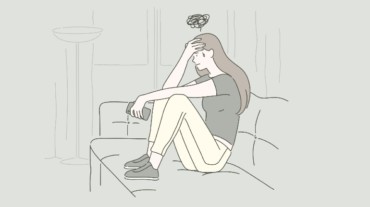
Millions of people today battle anxiety and is one of the most common mental health issues plaguing our society. However, not many people realize that ignoring it can have serious repercussions. In fact, a majority of those battling anxiety never end up seeking advice, treatment or therapy. There’s no doubt that celebrities opening up about their battle with anxiety has raised public awareness, but a large population is hesitant to take action to deal with it.
Before getting into details, let’s look at the basic question of what anxiety is. Feelings of unease, tension, stress and worry are common, but when your body continues to stay in the fight-or-flight mode much after getting out of tough situations, it is a cause of worry.
“Such feelings can be debilitating and take over one’s life. When this starts to happen, anxiety becomes a mental health problem. There are some people who worry all the time, even about the smallest of things. Those are typical signs of anxiety,” says Akanksha Arora, a psychologist who has been practising for over a decade.
When looking at the symptoms of anxiety, one has to realize that it is different for everyone. The bottom line, however, is that anxiety can have both physical and psychological impacts. While short-term effects can pass with time, some might experience long-term impact on their health and well-being.
Some of the physical symptoms include headaches, dizziness, tensed muscles, the sensation of pins and needles, faster breathing, sweating, a rise in blood pressure, difficulty sleeping, as well as fatigue.
Also, read: I ignored my anxiety for years until it made it impossible for me to breathe

“Psychologically, people with anxiety experience tension, a sense of dread, numbness, replaying situations over and over again, and a constant feeling of restlessness. Anxiety does not show up in the same way for every person. So, it might look different for you as compared to those around you,” says Akanksha.
If you do not tackle anxiety at the earliest, it can have several long-term impacts on our body. Let’s take a look at them:
When a person feels anxious all the time, they might experience shortness of breath. As a result, their breathing might be shallow and rapid. With time, this leads to unhealthy breathing patterns because the amount of oxygen inhaled is more than the amount of carbon dioxide exhaled by the person.
“When there’s excess carbon dioxide in the body, the brain doesn’t receive the required supply of blood. Eventually, that leads to dizziness and numbness. In severe cases, it might also result in loss of consciousness. For those who suffer from asthma, anxiety can make their symptoms worse,” says Akanksha.
Those who suffer from severe anxiety can also have chronic digestion and excretory problems, such as stomach pain, excessive bloating, abdominal cramping, diarrhoea, irritable bowel syndrome, and vomiting. You might think abdominal pain is normal, but if you continue to suffer from it on a regular basis, it’s time to sit up and take notice of your feelings.
Select Topics of your interest and let us customize your feed.
PERSONALISE NOWYou might think of it as absurd but we’re not kidding. When your body continually goes through stress and anxiety, it makes it difficult for your body to return to its normal rested state. This means your immune system is always under pressure, making it prone to frequent illnesses and viral infections. So, if you are always troubled with flu and other issues, it could be your anxiety at work.
Also, read:
“When you are constantly anxious, your amygdala sends signals to your central nervous system to prepare for a stress response that leads your muscles to contract, or tighten very often. Constant muscle tension can lead to cramped, stiff or sore muscles, aches and pains. In some cases, it might get so severe that you develop joint pain, arthritis, and fibromyalgia,” adds Akanksha.
Ladies, if you are constantly worried, make sure to seek professional help and tackle the issue right away. Anxiety is something that needs to be confronted and dealt with head-on.